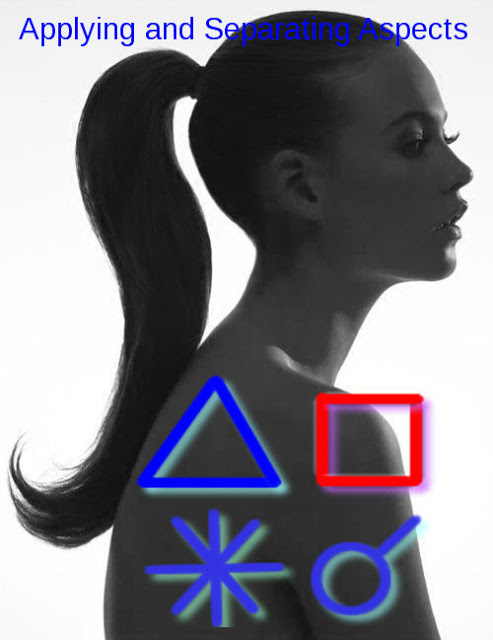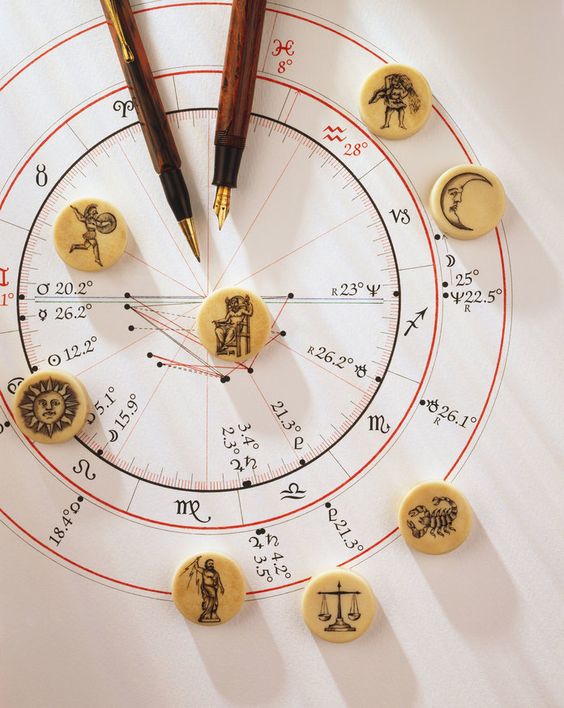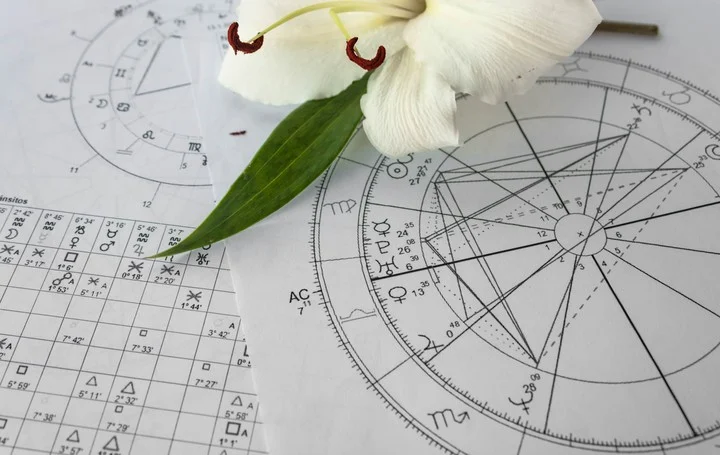
[responsivevoice_button voice=”UK English Female” buttontext=”Listen to Post”]
Question: Do you find a significant difference between the strength of applying and separating aspects?
In the general sense, there isn’t much difference when reading a natal chart. However, if we refer to progressions, because of their symbolic movement, applying aspects will become exact during early childhood. In contrast, those who are born with the same aspect, only separating, will not experience it as powerfully in their early childhood. It is believed that applying aspects are more powerful and intense, representing energies coming into being, and will be particularly influential at a particular time. The separating aspects may unfairly be said to have “already happened” – it’s all past tense, with the belief that, over time, they will exert less and less influence over us. When determining applying and separating aspects, we always observe the faster-moving planet to determine whether it is forming or progressively moving away. A good consensus of astrologers believe that the applying aspect is much more powerful. John Addey felt that applying and separating aspects were qualitatively different, and even going as far as to compare them to soft and hard aspects. The author found that the applying aspects were more active, restless, volatile and erratic in expression and the separating aspects more calm and stable, or even sluggish.
According to Sue Tompkins a good way to observe applying and separating aspects is to watch the transits:
A good way to test theories like this (applying aspects being stronger than separating) is to watch how people experience transits. This is a good way to understand how a given aspect feels too. If one has Pluto applying to the Sun for example, then during that transit one can get some idea of how it feels for people with Sun-Pluto contacts all the time. Many people seem to experience transits according to the nature of the planet that is doing the transiting. Saturn transits for example are often felt much, or even more, separating from exactitude. And this is of course well in accord with the delaying quality associated with Saturn. Transits of Mars are often felt prematurely, while with Uranus transit there doesn’t seem to be any rule as to when a major expression of the transit will be felt. Aspects in Astrology
 Determining the stronger aspect often involves other factors, Say, for instance, an aspect is in very close orb and on angle but separating. Another aspect is wider and applying but not placed strongly in the natal chart. Which is the more powerful aspect? Many astrologers would choose the former rather than the latter. Yet there are some astrologers who believe an aspect not yet passed is not yet mature. Any separating aspect will usually have been exact in the nine months preceding birth. While there are some spiritually inclined astrologers asserting that the separative aspects are beginning to lose power and belong in the past. Most of the emphasis on the applying aspects focus on the early childhood and its impact on the growing individual. The closer an aspect is to being exact the stronger it is thought to be in our life. As applying aspects are exact early in life, it is supposed to make these issues more crucial. In the end, our personality and behaviour are continually shaped throughout the life cycle, and while there may be some early childhood influence, all things considered, if they are within orb both applying and separating aspects hold a powerful influence over the psyche of the individual in question.
Determining the stronger aspect often involves other factors, Say, for instance, an aspect is in very close orb and on angle but separating. Another aspect is wider and applying but not placed strongly in the natal chart. Which is the more powerful aspect? Many astrologers would choose the former rather than the latter. Yet there are some astrologers who believe an aspect not yet passed is not yet mature. Any separating aspect will usually have been exact in the nine months preceding birth. While there are some spiritually inclined astrologers asserting that the separative aspects are beginning to lose power and belong in the past. Most of the emphasis on the applying aspects focus on the early childhood and its impact on the growing individual. The closer an aspect is to being exact the stronger it is thought to be in our life. As applying aspects are exact early in life, it is supposed to make these issues more crucial. In the end, our personality and behaviour are continually shaped throughout the life cycle, and while there may be some early childhood influence, all things considered, if they are within orb both applying and separating aspects hold a powerful influence over the psyche of the individual in question.
Charles Carter says:
A final point is as to the relative values of applying and separating contacts. Some have gone so far as to affirm that the latter have no value at all, which may be dismissed as an ignorant and nonsensical opinion. Prima facia, one may be tempted to suppose that applying aspects are stronger; but this is not necessarily always the case.












